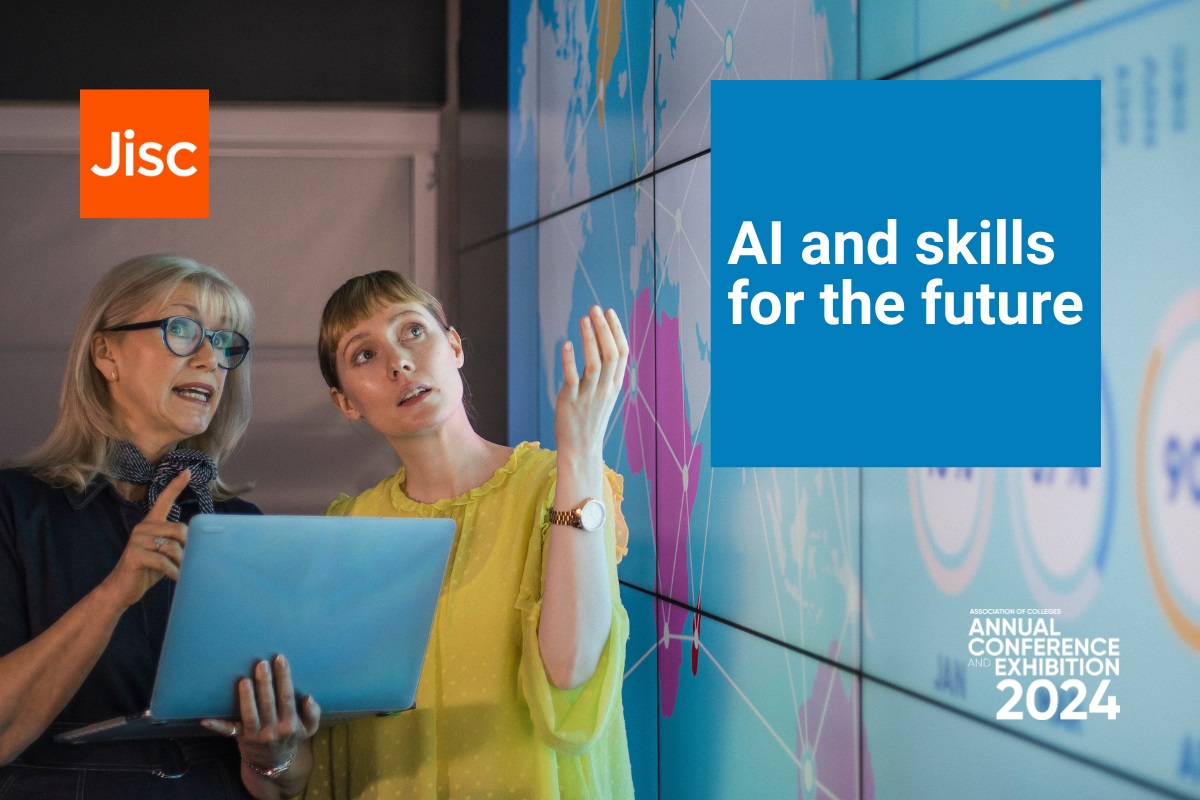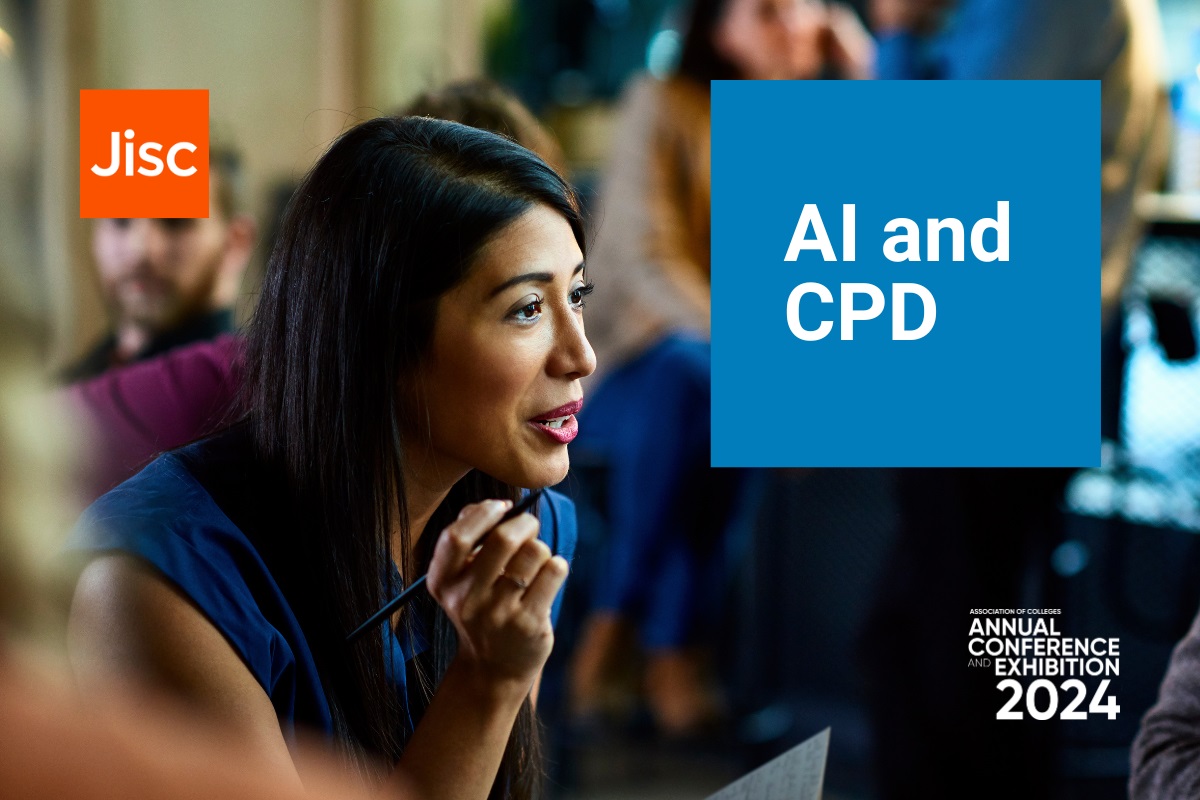Embracing AI: key skills for the future of education and employment

At the 2024 Association of Colleges (AoC) conference, Jisc hosted a series of live podcasts on its exhibition stand, focusing on some of the key digital priorities keeping FE leaders awake at night.
Senior artificial intelligence (AI) specialist Tom Moule from Jisc, is joined by Josh Smith, head of public affairs at UFI and Anthony Bravo OBE, CEO and principal at Basingstoke College of Technology to explore how AI is reshaping workforce readiness, essential skills, and lifelong learning in education.
Getting hands on with AI
As artificial intelligence (AI) continues to reshape our world, learners must develop a mix of technical and human-centered skills to thrive. This new podcast takes a deep dive into the essential skills learners and educators need to prepare for an AI-enabled future.
Anthony Bravo stresses the importance of hands-on experience with AI tools. It’s not enough for learners to simply understand AI theory – they need to interact with AI technology directly. By experimenting with AI applications and solving real-world problems, learners build confidence and familiarity, essential for future success.
Understanding AI ethics
As AI becomes more sophisticated, learners must also understand its ethical implications. Bravo points out that being able to spot fake AI-generated content, such as deepfakes or manipulated images, is critical. It is also essential to understand the limitations of AI – what it can, and, importantly, what it can’t do. Teaching learners about AI ethics helps them evaluate the authenticity of digital content, a crucial skill in today’s world.
The human touch: creativity and empathy
Even with AI’s capabilities, human skills such as creativity, empathy, and communication remain irreplaceable. Bravo and Smith agree these soft skills will be in high demand as AI is used to tackle more everyday tasks. Focusing on developing these qualities will prepare learners for roles that require emotional intelligence and complex problem-solving.
AI tools for teachers and learners
AI is also transforming teaching. Smith highlights how AI can automate tasks like grading, freeing up teachers to focus on developing effective relationships with learners and personalized learning. Tools like real-time translation can also be invaluable in the classroom and even across campus and in wider communities, particularly to support those learning English as a second language to better engage with those around them.
Adapting to change
Finally, staying adaptable is key. With technology evolving rapidly, both Bravo and Smith stress the importance of lifelong learning. Whether through new digital tools or changing career paths, learners need to develop the flexibility to adapt to the constantly changing landscape.
By blending technical skills with human-centered abilities, learners will be better equipped for the future of work in an AI-enabled world.










Responses